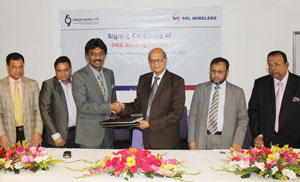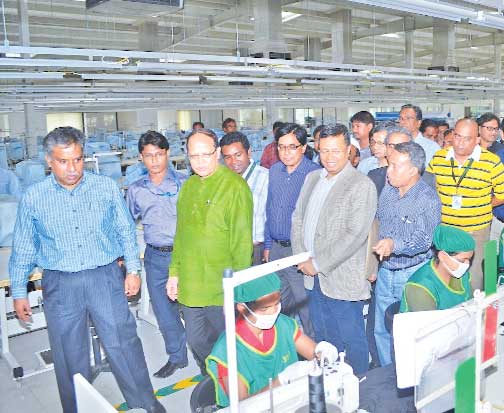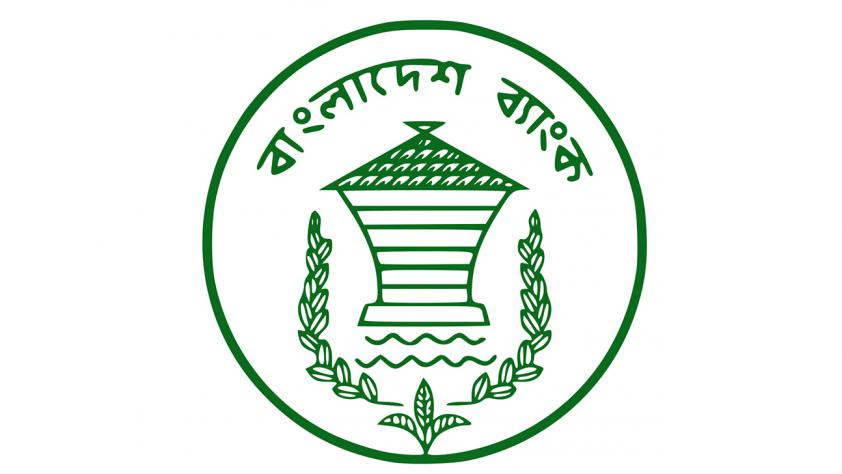Banking
BB chief economist for trimming savings bond interest rate
Bangladesh Bank (BB) Chief Economist Biru Paksha Paul at a seminar yesterday opined to reduce the rate of interest of savings bond to boost up loan flow in private sector, reports BSS.
“The average rate of interest for BB’s loan is 15 per cent, which is hampering the desired investment, but if the rate of interest is reduced, the investment would be boosted,” said the BB chief economist while presenting a keynote paper at the seminar.
He also said “The central bank has to be given full regulatory authority to control the rate of interest for making the monetary policy effective, which would also help the BB to cut the interest rate”.
Board of Investment (BoI) organised the seminar on the State of the Economy in city’s Dhaka Reporters’ Unity.
Biru Paksha Paul said controlling inflation as one of the major tasks, and the BB is doing the job well in last few years but “the existing rate of interest is barring the investment”.
Criticizing the existing rate of interest, he said the BB has forwarded its recommendation to the government to reduce it.
The BB chief economist hoped the GDP would be 7 per cent and poverty line would come below 10 per cent after the implementation of the ongoing mega projects in infrastructure and power sectors.
Director of Dhaka Mass Rapid Transit Project Mohammad Nurul Ameen and BIDS Senior Research Fellow Dr Naznin Ahmed also spoke on the occasion with BoI Chairman Dr S A Samad in the chair.
Speaking on the occasion as chief guest, Energy Adviser to the Prime Minister Towfiq-e-Elahi Chowdhury also opted for the reduction of the rate of interest to heighten investment.
Apart from the rate of interest, he emphasised ensuring uninterrupted power and gas connection along with
infrastructural facilities.
“The present government has already developed the infrastructural facilities significantly and now 70 per cent population of the country is getting power connection which was 45 per cent in 2009,” added the adviser.
Union Bank Ltd
 Md Abdul Hamid Miah, managing director of Union Bank Ltd, and Sayeeful Islam, managing director of SSL Wireless (Software Shop Limited), exchange documents after signing an agreement on offering SMS banking service to the customers of the bank in the city Sunday.
Md Abdul Hamid Miah, managing director of Union Bank Ltd, and Sayeeful Islam, managing director of SSL Wireless (Software Shop Limited), exchange documents after signing an agreement on offering SMS banking service to the customers of the bank in the city Sunday.
Atiur urges banks, NBFIs to invest in green industries
He visits Plummy Fashions at Fatullah
 Bangladesh Bank Governor Dr Atiur Rahman seen visiting the factory of Plummy Fashions, the first green knit garments unit in the country, at Fatullah in Narayanganj on Saturday.
Bangladesh Bank Governor Dr Atiur Rahman seen visiting the factory of Plummy Fashions, the first green knit garments unit in the country, at Fatullah in Narayanganj on Saturday.
Bangladesh Bank (BB) Governor Dr. Atiur Rahman has asked the commercial banks and non-banking financial institutions (NBFIs) for taking necessary measures to invest in green industries to protect environment. “All the chief executive officers (CEOs) of banks and NBFIs will have to look for potential entrepreneurs for building socio-economic and green industries through proper financing not only from BB’s refinancing facility but also from their own sources,” the central bank chief said while visiting Plummy Fashions, the first green knit garments factory at Fatullah in Narayanganj on Saturday. Mentioning the Rana Plaza disaster, BB Governor said: “We need to be determined and united to keep our commitments ensuring that no industry building will be there that will not comply with building code and no single industry building will be constructed without environmental and social risk assessment.” “So let’s contribute effectively from our own status to building more and more green industries. The more green the country’s apparels would be, the more value it could add to export earnings,” the governor noted. He also said the central bank has been contributing to green banking for the last half a decade. Some 47 green products in 10 categories have been introduced since 2009. “Many products, such as solar panel, activated ETP, solid and other liquid waste management, working condition in factories and above all, green component installation, inclusion, adjustments or extension according to LEED’s design have been considered for establishing Plummy Fashion as a green factory,” Dr. Rahman explained. Mentionable, Plummy Fashions Limited has been set up in an area of 5.5 acres of land with environment-friendly building and 50 percent green open space. It has taken only 12 months to complete the major part of the construction. With a project cost worth Tk 600 million, it gets green-refinance support from the central bank of Bangladesh. Situated in Norshingpur area of Kashipur union in Narayanganj, the factory is now getting ready for operation. The main production building, made in pre-fabricated steel, is only two-storied and has 10 exit points in case of emergency. It is fully air-conditioned to provide comfort to the workers.
News:Daily Sun/27-Apr-2015BB must have more control over money market
Chief economist says govt's control over interest rates on savings certificates disturbs market

The government should give more powers to Bangladesh Bank to allow it to properly play its role in the money market and rein in inflation, the central bank's Chief Economist Biru Paksha Paul said yesterday.
The government's control on the interest rate on savings certificates disturbs the market and affects the central bank's efforts to bring down lending rates and control inflation, which are needed to boost investment, he said.
“The central bank is supposed to control the interest rates. If there is someone else playing this role, our game is disturbed.”
“We have a referee -- the government. If the referee takes sides, the game is disturbed,” Paul said.
Speaking at a discussion on the state of the economy organised by the Board of Investment at Dhaka Reporters Unity, Paul said: "If the interest rate on saving certificates is high and you are forcing the banks to reduce the deposit rate, funds will be channelled into savings certificates. And there is a moral hazard as well.”
The sales of saving certificates rose 77.42 percent to Tk 26,533.48 crore in July-February from the same period a year ago, according to BB.
The spike is due to the high interest rate of 13 percent offered by the government on the instruments, while the rate is below 10 percent for banks; there are some instruments that are tax-free too, said officials.
"I will request the government to either reduce the interest rate on savings certificates or give control over the rate to the central bank," he said.
A reduction in the interest rate on savings certificates might facilitate a cut in bank rates and stimulate investment, he added.
"If it is done, investment will pick up," said Paul, urging the government to control taxes and fiscal issues.
The average lending rate declined to 12.32 percent in January from 12.46 percent in December, according to BB.
Inflation went down to 7 percent from 12 percent in the last three years, but the average lending rate did not go down to that extent due to institutional rigidity towards a downward revision, he said.
Many companies are switching to foreign borrowing because of the high lending rates in Bangladesh, Paul added.
However, foreign direct investment or FDI remains insignificant as a percentage of the gross domestic product, he said.
"We have to increase the efficiency of our bureaucracy. Our economy is strong but the institutions are not," he said, citing foreigners' complaints about weak institutions.
BoI Executive Chairman SA Samad said FDI is less than 2 percent of GDP.
He said foreign investment is led by supply, and Bangladesh should be an attractive destination to foreign investors because of various incentives offered by the government.
"It does not depend on me. It depends on those who invest. Investors have choices, but as an economist, I asked why we are not getting it.”
“I do not think there is any flaw in whatever we have designed to attract FDI," Samad said. FDI has been increasing since 2009, he added.
It cannot be explained why the member states of the Organisation of Islamic Countries get only 2 percent of global GDP and why China gets 10 percent, said the BoI chief.
“I believe Bangladesh is an attractive investment-wise, as it has a high rate of return and investment is secure here.”
Most investors who went to Vietnam and Myanmar have already left those countries. “People do not keep record of that but, in Bangladesh, the investment that has come has stayed and most profit is reinvested.”
Prime Minister's Energy Adviser Towfiq-e-Elahi Chowdhury said Bangladesh has made strides on economic and social fronts ranging from steady economic growth to poverty reduction. The standards of living have also improved, he added.
Some 70 percent of the population now has access to electricity, which was 45 percent a couple of years ago, he said.
News:The Daily Star/27-Apr-2015Egypt joins Asian Investment Bank, hopes for funds
Egypt has been approved as a founding member of the Beijing-backed Asian Infrastructure Investment Bank, opening the way for it to benefit from the bank’s $50 billion in funds, the foreign ministry said Thursday. Britain, Germany, France and Italy are also among the 57 founders of the AIIB, despite scepticism about it in Washington and Tokyo. As a result of its acceptance, Cairo will also have access to its ‘vast funding opportunities to finance development and infrastructure projects,’ the ministry said. It will also be able to participate in formulating the institution’s regulations and policies, the ministry said. President Abdel Fattah al-Sisi, who ousted his Islamist Mohamed Morsi in 2013, has vowed to revive Egypt’s economy battered after years of political turmoil. In March, at an international investment conference in the Red Sea resort of Sharm el-Sheikh, Egypt signed investment contracts worth $36.2 billion aimed at kick-starting economic growth. China and 20 other countries signed a memorandum of understanding in October to establish the AIIB. The new multinational lender is seen as a rival to the World Bank and the Asian Development Bank, two institutions under strong US influence. Washington has voiced concern about whether it would meet international governance, environmental and social standards, with president Barack Obama’s administration waging an intense but low-profile lobbying campaign against it. China is expected to foot the bulk of the initial money needed to get the AIIB started, with donations from other members set to increase the size of the overall fund to more than $100 billion.
News:New Age/23-Age-2015



